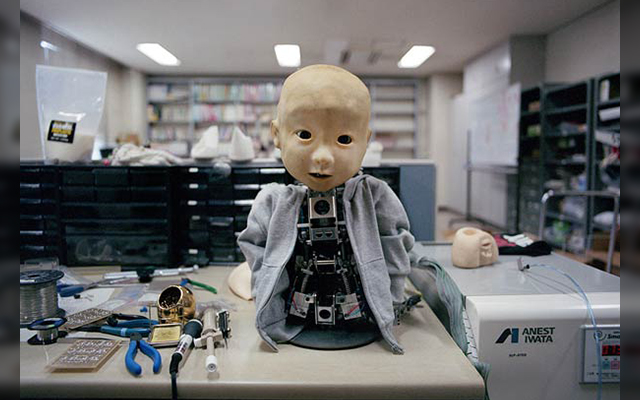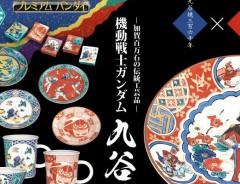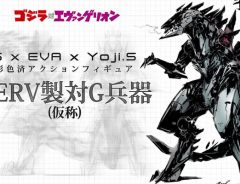
Source: Luisa Whitton
The Lifelike Advancements Of The Japanese Robotics Industry In A Revealing Photo Series
- Source:
- h/t: Design Boom / Luisa Whitton
- Tags:
- Cool / Japan / Photography / Robotics / Robots / Technology
Related Article
-

Used Car Dealership In Japan Receives Michelin Recognition For Affordable Gourmet Ramen
-

Awesome Gundam Designs On Traditional Japanese Porcelain Tableware
-

Start The Day Off With A High-Energy Wake-Up Call From A Japanese Fisherman At Sea
-

Godzilla Vs. Evangelion Figure Designed By Metal Gear Solid Character Artist
-

Man Breaks 726 Bricks In 90 Seconds With Bare Hands To Set World Record
-

Komeda Coffee’s 100% plant-based subsidiary: KOMEDA is □


"What About the Heart?" is a photo-series and book by Luisa Whitton that documents the advances of the robotics industry in Japan, and explores how these advances in technology affect the human identity.
Source: Luisa Whitton
She worked closely for months with Hiroshi Ishiguro, a renowned robotics scientist who is famous for building a robotic double of himself. Her photography , she explains, is an effort to provoke thought about the lifelike robotic appendages and how we divide the realms of human and robotic, if at all: "In the photographs, I am trying to subvert the traditional formula of portraiture and allure the audience into a debate on the boundaries that determine the dichotomy of the human/not human."
Source: Luisa Whitton
Source: Luisa Whitton
In asking Ishiguro about the definition of humanity, she was told "The definition of human will be more complicated, there is no absolute definition. We use artificial organs more and more, and replace our bodies with machines."
Source: Luisa Whitton
Source: Luisa Whitton
Source: Luisa Whitton
The eerie, yet lifelike creations force us to consider just how much of the human experience can be replicated.
Source: Luisa Whitton
Source: Luisa Whitton
Source: Luisa Whitton
Whitton posed the question "What about the heart?" to Ishiguro.
Source: Luisa Whitton
Ishiguro took the question at face valuing, answering that "The heart is the easiest part. Artificial hearts are very popular now. The liver is more difficult."
Source: Luisa Whitton
Source: Luisa Whitton
Source: Luisa Whitton